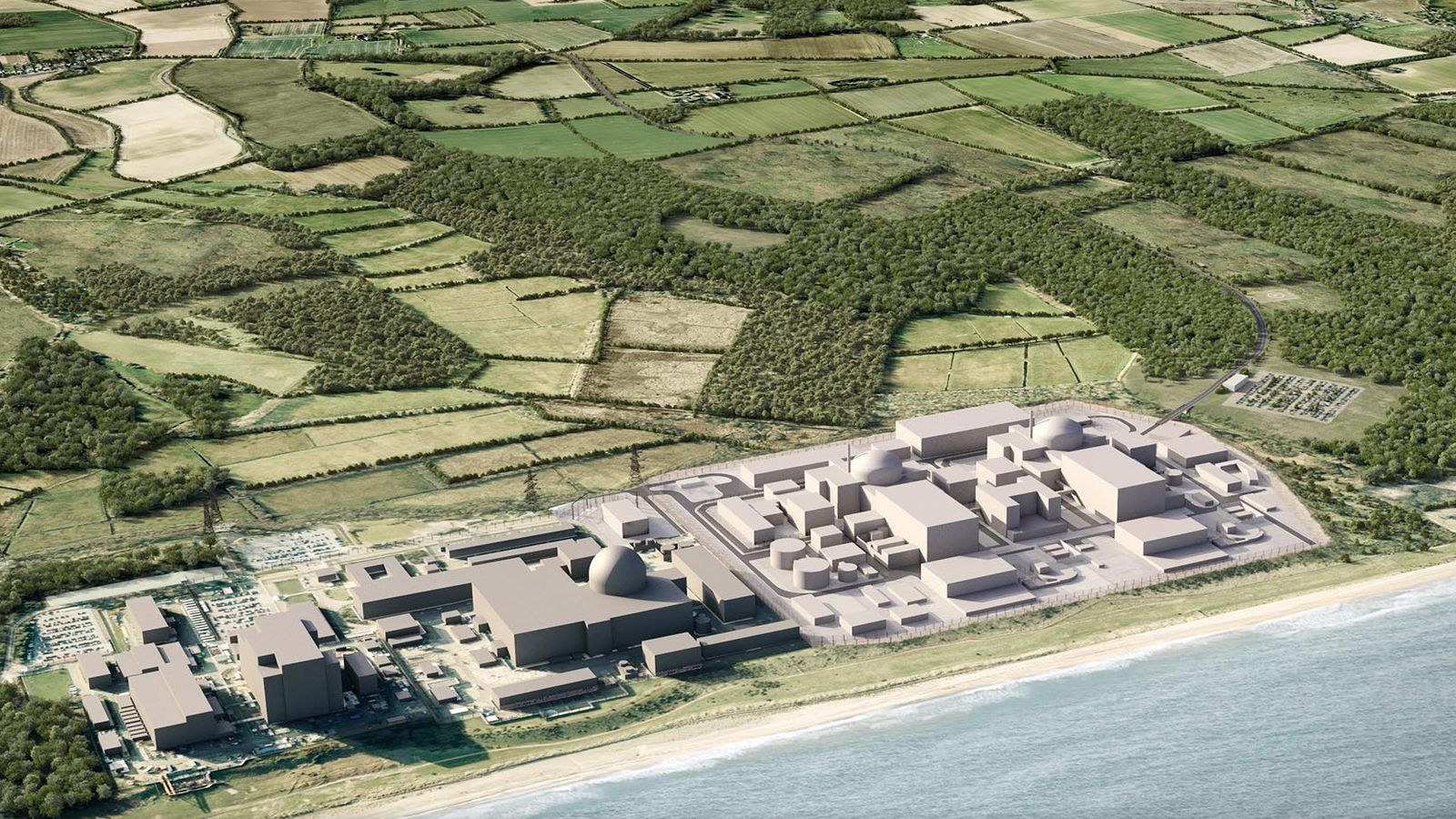
The UK government is attempting to strengthen energy security by investing £14.2 billion in the Sizewell C nuclear power station
Sizewell C has received £14.2 billion from the UK to satisfy climate goals, provide energy security, and generate jobs.
In a major move to increase the nation’s long-term energy security and meet its climate targets, the British government announced a £14.2 billion investment in the construction of the Sizewell C nuclear power plant in Suffolk.
The money will help build just the second new nuclear power plant constructed in Britain in more than 20 years, and it was revealed as part of the government’s larger spending review for the upcoming four years.
The investment is a critical step in creating a more independent and ecologically sustainable energy system, according to Energy Secretary Ed Miliband.
“To address the climate crisis, restore control over our energy, and safeguard family finances, we need new nuclear to deliver a golden age of clean energy abundance,” Miliband said.
The building of Sizewell C is anticipated to produce about 10,000 employment and provide electricity for almost six million homes. Still, the government has not given a definitive estimate of the project’s overall cost or a completion date.
The facility will use a regulated asset base (RAB) funding approach, which lowers development risks and draws in more cheap financing by allowing businesses to get paid while building is underway. Critics caution that the concept could expose taxpayers to spiraling expenses and further strain already burdened household energy bills, despite proponents claiming it can help get vital infrastructure built more quickly and affordably.
The project was initially overseen by EDF, a French state-owned energy corporation that is also in charge of the Somerset-based Hinkley Point C project, which has been delayed. The government’s ongoing support for nuclear development was praised by Simone Rossi, CEO of EDF UK:
Rossi added, “It is also a vote of confidence in Hinkley Point C, which has put the UK nuclear industry back on track and developed the experience and skills that will benefit Sizewell C.”
Even though EDF was involved, the UK government now owns the majority of Sizewell C. By the end of December, the government owned 83.8% of the project, while EDF owned 16.2%, according to EDF’s February financial figures. Despite the fact that the update did not mention any new investors, the French company’s share is anticipated to decline after Tuesday’s news.
No additional information has been released, despite the developer’s December announcement that five investors were taking part in a bidding process.
Hinkley Point C, the sibling project of Sizewell C, has experienced several budget increases and delays. Based on prices from 2015, it is currently anticipated to start operations in 2029 at a cost of £31–34 billion.
A controversial but potentially revolutionary drive towards a greener and more secure energy future is centered on Sizewell C as Britain rushes to phase out its aging nuclear plants and reliance on fossil fuels.
All Categories
Recent Posts
Tags
+13162306000
zoneyetu@yahoo.com



